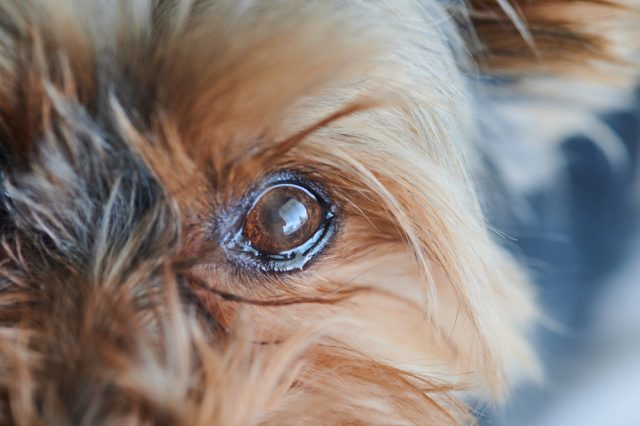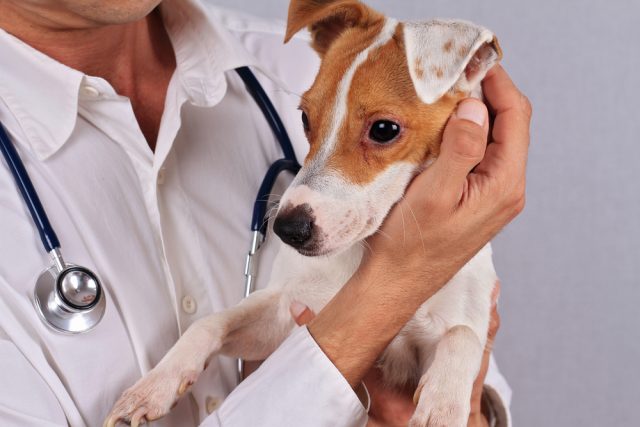Many things can cause redness and irritation of the eye. Most dog lovers want to know how to decide when to seek professional help and what is an emergency.
Corneal injury is something that will require veterinary assistance and needs to be handled quickly. The cornea is very thin, and injuries can quickly penetrate it and rupture the globe of the eye, causing irreparable harm. If your dog seems to be in pain and squints his eye, your vet can apply a special stain that will highlight corneal ulceration or injury and work aggressively to save your dog’s eye. Don’t delay.

The conjunctiva is the mucous membrane between the globe of the eyeball and the eye socket. It can become inflamed and irritated easily. Things like pollen and dust can serve as irritants that cause redness and itching and there are infections that can mimic irritant conjunctivitis. If your dog’s eyes are both affected and they seem more itchy than painful, you can probably wait for your vet’s regular business hours and skip the animal ER.
But if you think there is a possibility for corneal injury or ulceration (these patients squint and act painfully when you try to open the eye), don’t delay.

Dogs have normal haired upper and lower eyelids, but they also have a third eyelid. Also known as the nictating membrane, it arises from the medial eye (nearest the nose) and extends when needed to cover the eye as extra protection. This membrane is more rigid than the standard eyelids because it has cartilage inside it that folds against the curve of the eyeball. When this cartilage center everts (folds outward) it causes protrusion of the third eyelid, “cherry eye.” This is not an emergency and can wait for your regular vet, but it may require medical or surgical management.
Related: 10 Best Eye Supplements for Dogs

Eyelid lacerations are also common. As with any injury, seeking help quickly is the best chance for successful suturing and minimal scarring. Again, if you feel that the eye itself has been injured, don’t delay.
Of course, there are other ophthalmic disorders, but some of these are not as obvious to untrained observers. Squinting and light sensitivity are not normal, and if you feel there is something wrong with your dog’s eye, odds are you’re correct. Apply common sense if there is pain, bleeding, or trauma to the eye or drainage. Don’t try to medicate eyes at home with human medications. This is an area where you can do more harm than good. Let your vet help you, or you could cost your dog his eye.

Eyes are precious windows on the world, and although your dog would probably cope well with vision loss or even eye loss, it is always better to act quickly and save the eyes when you can.
 Toledo, United States.
Toledo, United States.